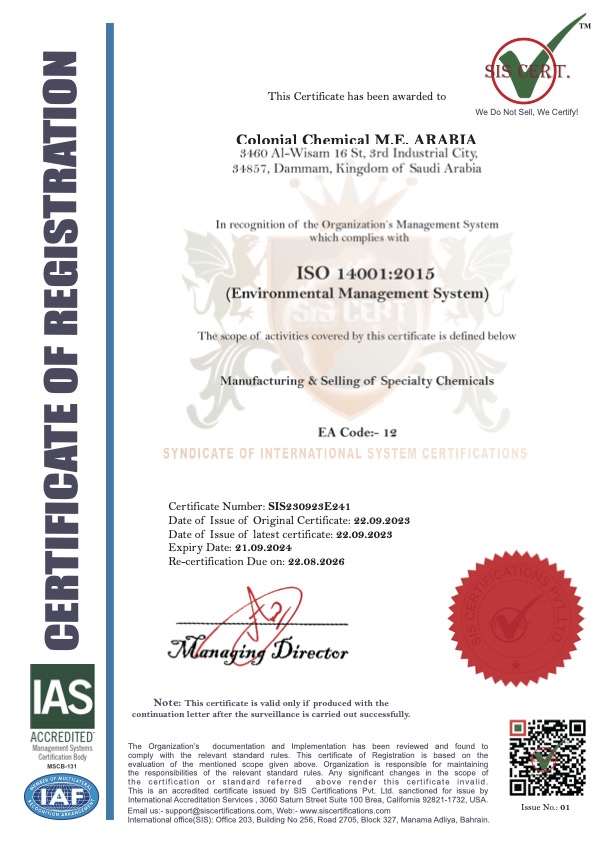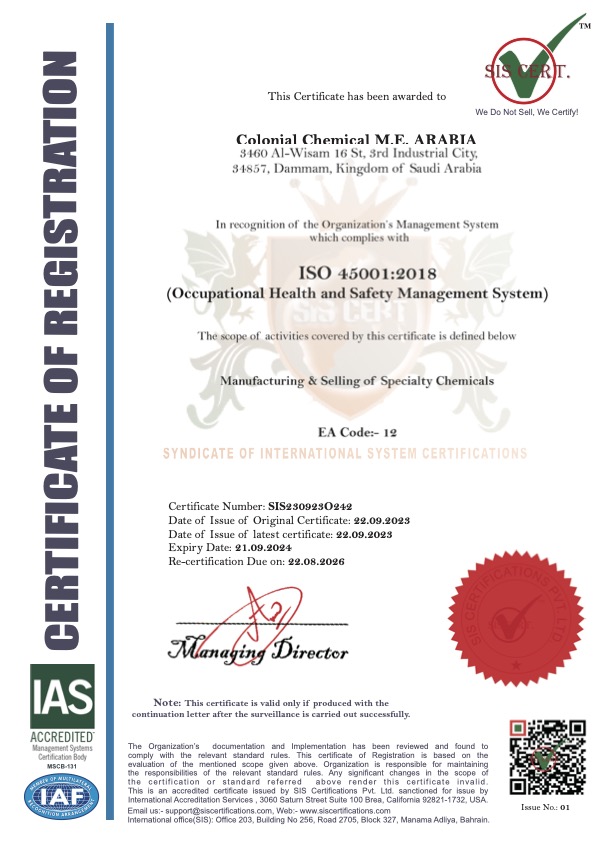Regulatory
ISO 9001-2015
ISO 9001 is a globally recognized standard for quality management. It helps organizations of all sizes and sectors to improve their performance, meet customer expectations and demonstrate their commitment to quality. Its requirements define how to establish, implement, maintain, and continually improve a quality management system (QMS).
Implementing ISO 9001 means your organization has put in place effective processes and trained staff to deliver flawless products or services time after time.
ISO 14001:2015
ISO 14001 is the internationally recognized standard for environmental management systems (EMS). It provides a framework for organizations to design and implement an EMS, and continually improve their environmental performance. By adhering to this standard, organizations can ensure they are taking proactive measures to minimize their environmental footprint, comply with relevant legal requirements, and achieve their environmental objectives. The framework encompasses various aspects, from resource usage and waste management to monitoring environmental performance and involving stakeholders in environmental commitments.
ISO 45001:2018
ISO 45001 is an international standard that specifies requirements for an occupational health and safety (OH&S) management system. It provides a framework for organizations to manage risks and improve OH&S performance.
The standard establishes criteria for an OH&S policy, objectives, planning, implementation, operation, auditing and review. Key elements include leadership commitment, worker participation, hazard identification and risk assessment, legal and regulatory compliance, emergency planning, incident investigation and continual improvement.
ISO 45001 utilizes the Plan-Do-Check-Act methodology to systematically manage health and safety risks. It applies to organizations of all sizes and can be integrated with other ISO management system standards.

Animal Testing
Colonial Chemical M.E. Arabia routinely conducts numerous tests and studies on raw materials and finished products to maintain our commitment to consumer safety, product effectiveness, and to comply with necessary regulatory requirements. All of our safety assessments are achieved through approved and validated testing methods.
Colonial Chemical M.E. Arabia shares the industry’s goal of reducing or eliminating animal testing wherever possible and is committed to the refinement, reduction, and eventual replacement of laboratory animals in product testing. We continue to collect data through more efficient testing protocols, extensive database modeling, and in vitro assays (typically conducted with cultured cells, cell fractions, or bacteria) when applicable. Furthermore, Colonial Colonial Chemical M.E. Arabia will never test its products on animals for the purpose of generating data for cosmetic purposes.
Only when governmental regulations require a specific analysis and when all other endorsed alternatives have been exhausted will Colonial Chemical M.E. Arabia commission an animal test. This will be performed exclusively through an independent commercial testing laboratory, and only accredited assessment facilities that meet strict compliance with international regulations governing laboratory animal care will be considered. Additionally, each laboratory must demonstrate procedures that limit the potential for discomfort to animals without sacrificing the efficacy of the study.

Palm Oil
Colonial Chemical M.E. Arabia practices good conservation of soil, water, forests, minerals, grasslands, wildlife, and energy, and we urge others to do the same.
We believe that palm products (any product or ingredient derived from oil palms, including palm oil, palm kernels, palm kernel oil, palm kernel expeller, and their fractions and derivatives) should come from sustainable plantations that actively conserve rainforests and peatlands. To support this, Colonial Chemical M.E. Arabia fully endorses the Roundtable on Sustainable Palm Oil (RSPO) authorized supply chain system for sustainable palm oil producers.
We will procure goods from suppliers certified as RSPO members when raw materials may contain palm products. RSPO-certified production units have been independently audited to ensure compliance with strict social and environmental responsibility guidelines and sustainable palm oil production criteria.
Check our progress at www.rspo.org.




